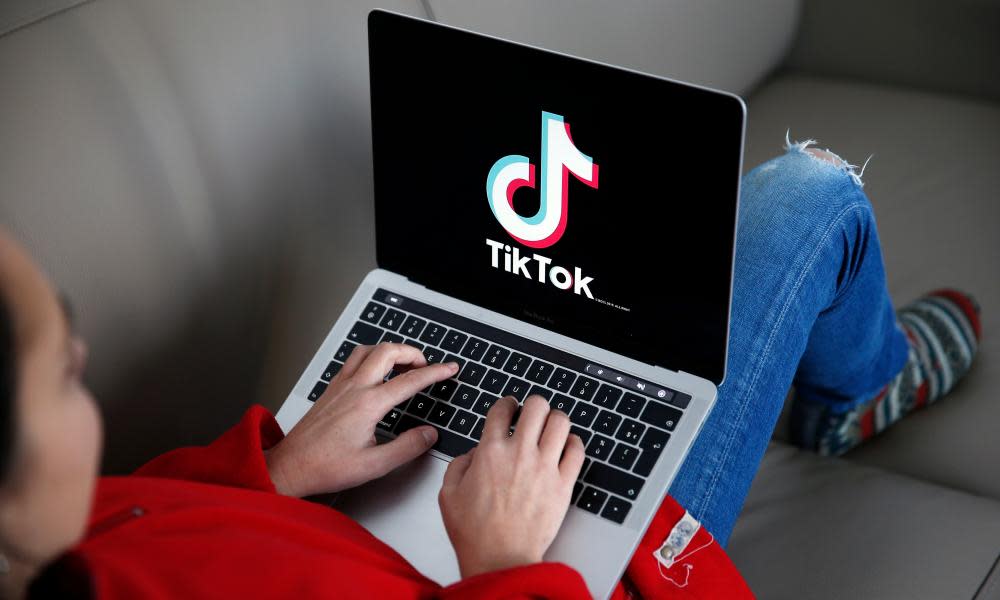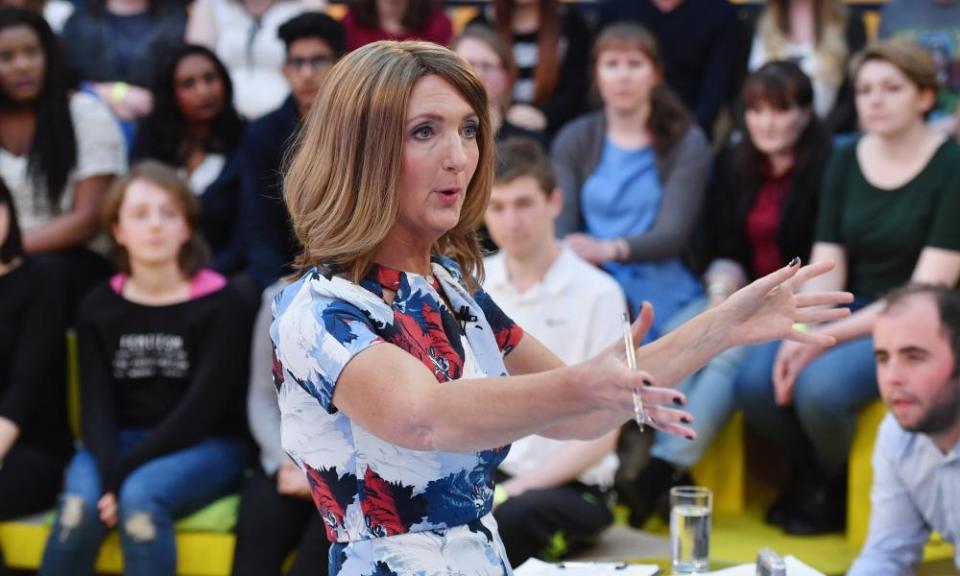Why the BBC is so bad at engaging younger audiences

One morning in November, in the midst of an already excruciating election campaign, I woke up to what felt like a fever dream. My group chats were all on fire, filled with friends sharing the same video clip: of Laura Kuenssberg, on the most recent episode of the BBC’s Brexitcast, wildly botching the definition of the common internet term “shitposting”.
Related: BBC at risk of losing young audiences, according to Ofcom
According to Kuenssberg, the meaning of “shitposting” was when “political parties or campaign groups make an advert that looks really rubbish and then people share it online saying, ‘oh I can’t believe how shit this is’.” The actual definition is sharing nonsensical things online to be funny or elicit a reaction. It could, and still can, be found by Googling “shitposting”, something nobody on the podcast apparently thought to do.
While this screw-up was a fun, maddening distraction from the election cycle, it was also a depressing starting gun for an election that exposed the BBC’s tone-deaf approach to contemporary digital culture.
In the last year, BBC journalists reported a false story on Twitter, created an online video dedicated to “political activists” that failed to mention their involvement in an organisation linked to white supremacists and published an article praising an ethnonationalist’s stylish haircut before disclosing his anti-Muslim views. And in what might be the most W1A-come-to-life moment ever, the BBC’s media editor, Amol Rajan, seemingly created his own fake news story in a lecture about how to spot misinformation online. Although a simple mea culpa could have saved face in the case of the BBC’s shitposting mistake, the Brexitcast producer instead spent days defending the incorrect definition on Twitter.
Many people see these problems as part of a broader intra-BBC conspiracy that peddles a particular strain of bias (whether that bias is left or rightwing depends on who you’re talking to). Yet the true root of these problems lies in the BBC’s continuing inability to handle internet-culture subjects – and its failure to connect with audiences below the age of 30.

What social media the BBC uses is far from millennial-friendly – a tepid array of memes on Instagram, mostly news-y Twitter accounts, and Facebook pages that share BuzzFeed-style videos of the kind that were already tired cliches in 2015. There has been no real effort to develop an original presence, either, on YouTube – a digital space that has been a social media staple for a decade.
The BBC has cautiously dipped its toe into projects explicitly created to engage with “younger audiences”. The Next Episode, a news podcast aimed at under-25s, was a notable example: an ad for the podcast acknowledged the “BBC has a problem” and that it wanted younger audiences to “love us, not tolerate us”. Since launching, The Next Episode has fallen flat: it’s hard to find a single tweet or Instagram post from a young person in the last six months saying anything about the podcast, and almost every single post that does praise the show from that period is from someone who works at the BBC.
There are also formats the BBC hasn’t even tried to touch – most notably TikTok, the shortform video-sharing app that is hugely popular among under-18s. There are users in Broadcasting House ready to build these digital presences, such as BBC journalists Sophia Smith Galer and Emma Bentley, who both share videos about working at the broadcaster on TikTok, and who have both accrued over 12K followers and regularly go viral. Yet they seem to be either flying under the senior radar, or being ignored.
There are, of course, some exceptions. Sex blogger Oloni’s dating show, My Mate’s a Bad Date, premiered on BBC Three in November and has aired weekly on BBC One since the start of the new year. Brexitcast partnered with the incredibly popular The Receipts Podcast, whose audience is predominantly young women. Elsewhere, BBC Reel has created videos about modern dating, race, fitness addiction and cosmetic surgery that have the potential to genuinely engage younger viewers.
However, these exceptions fail to engage with the platforms that young people use, merely pushing relatable content through the traditional (and often stale) BBC channels. Most teenagers spend their days on YouTube and TikTok rather than BBC Three – so even if the content on BBC channels is appealing, it’s less likely to chime with its target audience.
The Victoria Derbyshire programme on BBC Two was a rare case of a traditional BBC news show that successfully engaged with millennial audiences – covering stories about influencers being solicited for sex, the dangers of certain cosmetic surgeries, and championing the voices of working-class people, BME women and those with disabilities. The news last week that Victoria Derbyshire had been axed suggested that connecting with young viewers features some way down the BBC’s list of priorities.
Shortly before the director general, Tony Hall, announced his departure from the BBC after seven years in the role, he shared new plans to open a tech hub in Newcastle with the intention of luring younger, more internet-literate audiences back to the broadcaster. If the Beeb continues with its apprehensive, middle-aged approach to how under-18s consume content, it’s hard to see this strategy becoming a reality.
• Sarah Manavis is the digital culture writer at the New Statesman

 Yahoo News
Yahoo News 
